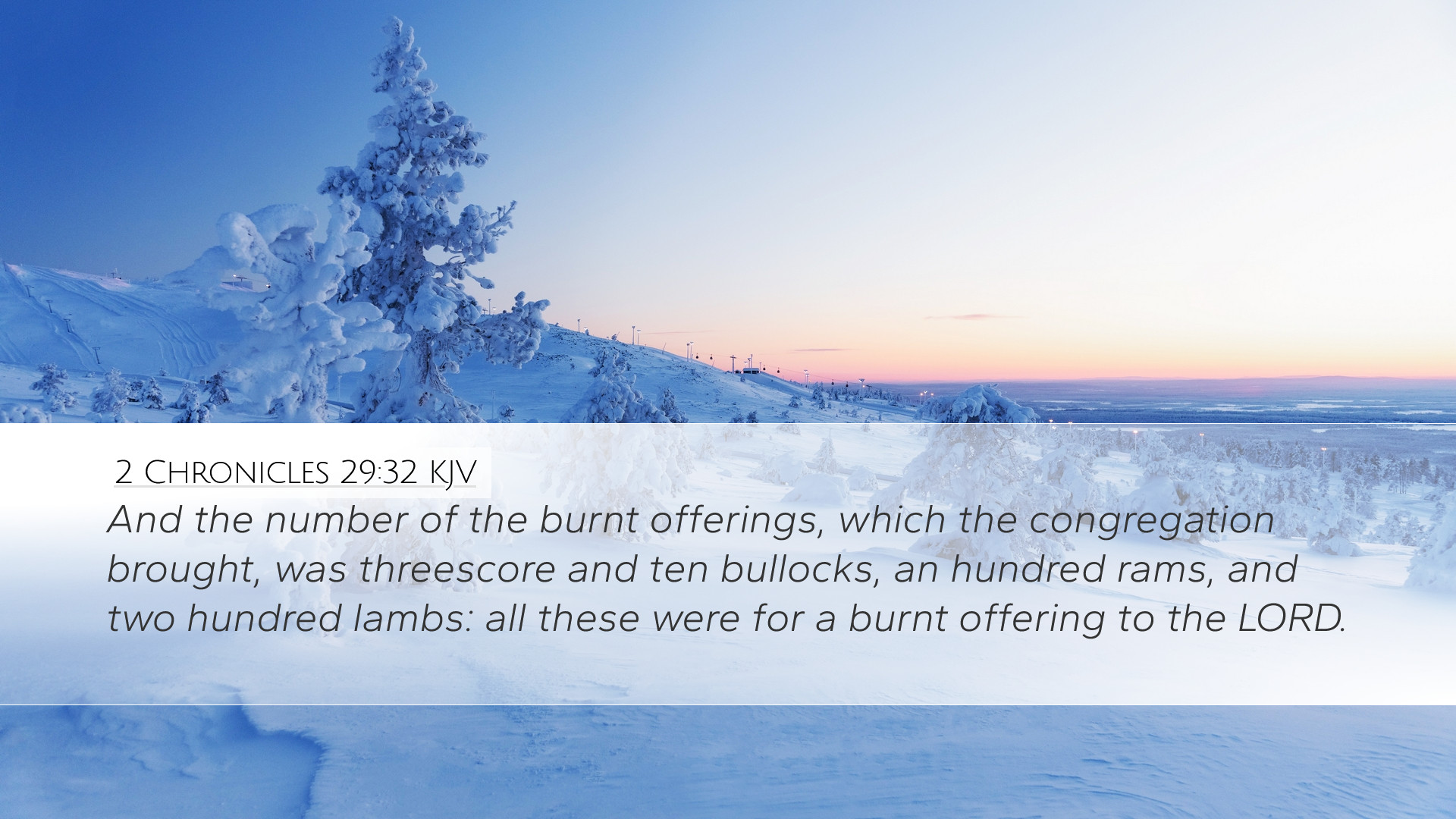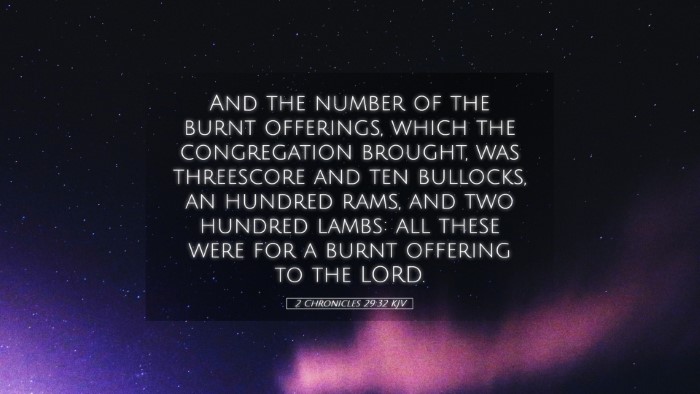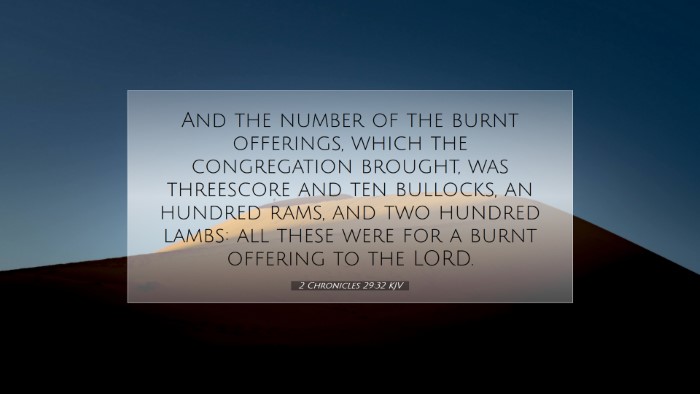Bible Commentary on 2 Chronicles 29:32
Verse Reference: 2 Chronicles 29:32
“And the congregation brought in sacrifices and thank offerings; and as many as were of a free heart burnt offerings.”
Introduction
The reign of King Hezekiah marked a significant period in the history of Judah, wherein restoration, renewal, and a return to true worship were paramount themes. This verse reflects the people's response to their leader's call for revival and dedication to God. Here, we observe a collective act of worship and thanksgiving that is vital for understanding both the historical context and the theological implications of worship in ancient Israel.
Expository Insights
Understanding the Context
Hezekiah ascended to the throne during a time of great spiritual decline in Judah. His reign is characterized by efforts to cleanse the temple, restore proper worship, and lead the nation back to covenant faithfulness. The sacrifices and offerings mentioned in this verse are a direct outcome of Hezekiah's reforms and the reestablishment of the festival practices that had been neglected (see 2 Chronicles 30).
Key Elements of the Verse
-
Congregational Participation:
The term "congregation" signifies the collective nature of worship in Israel. This indicates not just a ritual act but a community-oriented response to God’s goodness and mercy. As Matthew Henry notes, "They came together in a body, to express their unity in this service." This emphasizes the importance of corporate worship in the life of the believer.
-
Sacrifices and Thank Offerings:
The mention of "sacrifices and thank offerings" is significant in the context of Israelite worship. Albert Barnes highlights that these offerings were not merely religious obligations but acts of gratitude that signify a heart touched by God’s grace. The combination of sacrifices - both for atonement and thanksgiving - suggests a holistic approach to worship that acknowledges God’s sovereignty and mercy.
-
Freewill Offerings:
The phrase "of a free heart" underlines the attitude of the worshippers. Adam Clarke elaborates by stating that genuine worship must come from the heart and cannot be enforced. This concept of freewill offerings points to the importance of voluntary devotion and the inward disposition of the worshipper, which is equally as crucial as the outward acts of worship.
Theological Implications
Worship in Spirit and Truth
This verse encapsulates the essence of worship as God intended. It illustrates that true worship is not limited to rituals but is deeply rooted in the hearts of the people. Hezekiah’s reforms initiated a movement towards true worship that aligns with the idea expressed in John 4:24, where Jesus emphasizes worshipping "in spirit and truth." This collective return to worship highlights God's desire for a personal relationship with His people, an aspect that should resonate with contemporary believers.
The Role of Leaders in Spiritual Renewal
Hezekiah, as a leader, played a crucial role in guiding the people back to God. His example illustrates the effectiveness of godly leadership in revitalizing a community’s spiritual fervor. The active involvement of the people in bringing sacrifices can be seen as a direct result of Hezekiah's passionate appeals for repentance and restoration. This model serves as an encouragement for today’s leaders in the church to foster environments where worship and spiritual renewal can flourish.
The Nature of Sacrifice
Within the Old Testament context, sacrifices were a means to atone for sin and express thankfulness to God. This passage underscores the continuity between the Old and New Testaments regarding sacrificial language. In light of Christ’s ultimate sacrifice, believers today are called to present their bodies as living sacrifices (Romans 12:1), symbolizing a life dedicated to God, reflective of the free offerings that originated in the heart rather than mere obligation.
Conclusion
The narrative surrounding 2 Chronicles 29:32 serves as a rich tapestry of historical, cultural, and theological insights pertinent for pastors, theologians, and students of the Word. The verse stands as a testament to the power of collective worship, the significance of heartfelt offerings, and the essential role of leaders in conducting a nation toward spiritual awakening. It challenges contemporary believers to engage in worship from a place of gratitude and sincerity, resonating with the enduring truth of God's desire for a people who worship Him authentically.
Reflection Questions
- In what ways can we encourage collective worship among our congregations?
- How does the concept of freewill offerings apply to our understanding of giving and service today?
- What steps can we take to cultivate a heart of gratitude toward God in our worship practices?


